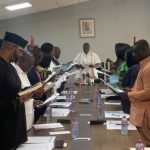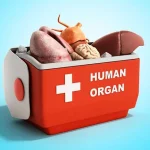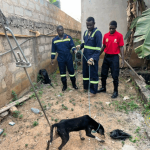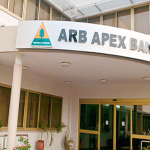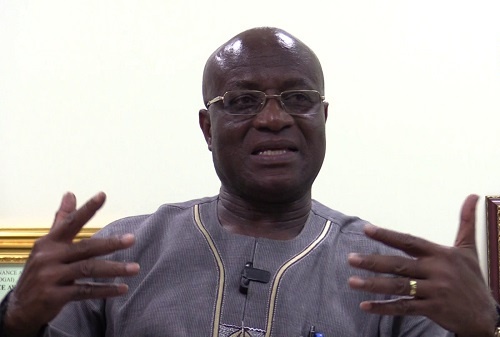The government has announced plans to introduce a COVID-19 Health Levy of one per cent on VAT and other levies as part of economic recovery measures.
The COVID-19 levy, Flat Rate Scheme (VFRS) and a 1% on National Health Insurance Levy (NHIL) forms part of revenue measures to mitigate the devastating impact of the novel coronavirus.
The Minister for Parliamentary Affairs, standing in for the Minister for Finance Osei Kyei Mensah-Bonsu made this known on Friday.
He admitted that the pandemic has caused additional health spending that far exceeded the annual budget for health sector thus the reason for the levies.
Tasked with the presentation of the 2021 budget statement and economic policy, the majority leader said the levies will be used for the procurement of vaccines and establishment of 14 medical waste treatment facilities.
Mr Mensah-Bonsu said the levies will also assist in the construction of 33 major health projects, the recruitment of more health professionals and agenda 111.
“To provide the requisite resources to address these challenges and fund these activities, government is proposing the introduction of a Covid-19 Health Levy of a one percentage point increase in the National Health Insurance Levy and a one percentage point increase in the VAT Flat Rate to support expenditures related to Covid-19,” he disclosed.
Ghana is estimated to have lost GHC13.6 billion in revenues as a result of the COVID-19 pandemic.
“Overall budget deficit on a cash basis was 11.4% of GDP. The primary balance recorded a deficit of 5.3% of GDP. Annual growth of outstanding credit to the private sector moderated from 9.39% in December 2019, to 0.17% in December 2020.
“This unprecedented crisis, for which we had no pre-existing guidelines, triggered a sudden shortfall in government revenues amounting to GHC13.6 billion and an unexpected, unavoidable rise in expenditures of GHC11.7 billion,” the majority leader said.
The Ghana COVID-19 Alleviation and Revitalization of Enterprise Support initiative, is also another programme aimed at stabilising, revitalizing and transforming Ghana’s economy over a three-year period.
It is sequenced in two phases; a stabilisation phase that runs from July 2020 to December 2020 and a medium-term revitalisation phase from 2021-2023.



